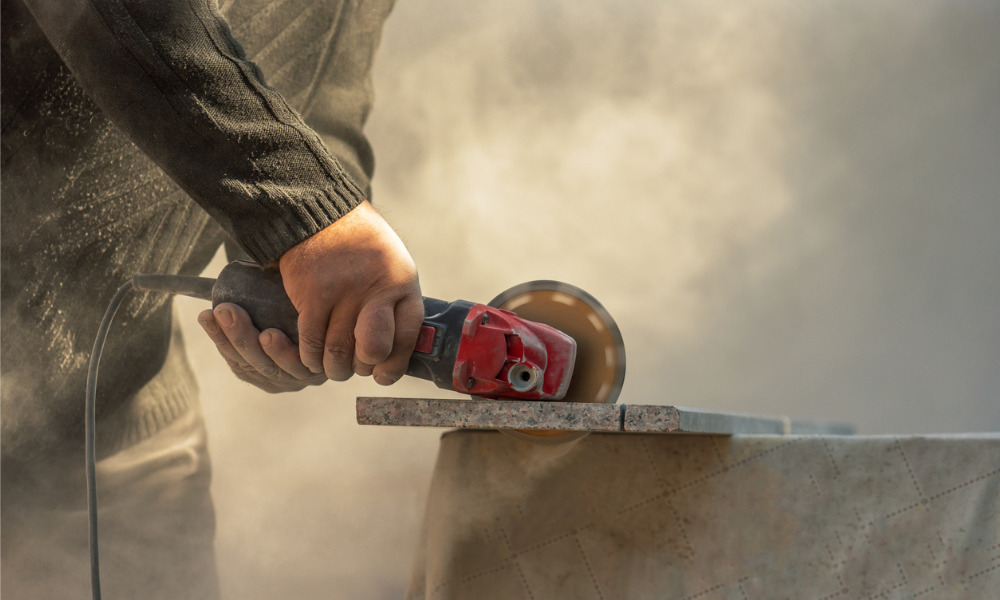
It details the responsibilities of employers in protecting staff

New South Wales has enforced a new industry safety standard to reduce the number of workers getting sick with silicosis because of their jobs.
Silicosis is a lung disease caused by breathing in tiny bits of silica, a common mineral found in sand quartz, and many other types of rock.
Engineered stone workers have been found to be very vulnerable to silicosis, with the Occupational Lung Diseases in Australia 2006-2019 Report confirming that a "substantial increase" of workers in the sector contracted the disease.
To reverse this trend, the SafeWork NSW adopted the national Code of Practice: Managing the risks of respirable crystalline silica from engineered stone in the workplace before it later took effect in late February.
Minister for Fair Trading Eleni Petinos said the code provides employers and workers a "clear understanding of how to safely cut, grind, polish and clean up when working with engineered stone products."
It also provides guidance on regular air and health monitoring for workers, including lung screening.
According to the code, the following people are responsible in managing the risks of silica dust when working with engineered stone:
Read more: NSW lifts work from home order but lawyer says employers face legal risks
Persons conducting businesses or undertaking must "eliminate risks arising from exposure to silica dust," according to the code, adding that if not practicable, they need to "minimised the risks for as is reasonably practicable to workers and other persons at the workplace."
They must also ensure that entrances and exits in the workplace do not have risks to workers, and that fixtures, fittings, and plants do not carry risks to any person.
In addition to the adoption of the code, SafeWork inspectors have also carried out over 900 visits to 250 engineered stone businesses as part of a five-year programme targeting silica exposure on worksites.
"We are seeing improvements in compliance and this code will help to support businesses to understand their duties and implement safe work practices to protect workers," said Petinos.
"It's incredibly important for businesses and their workers to know what hazards exist in their workplace and how to eliminate or manage them," she added.
The minister advised employers to always use adequate protection, wet cutting, on-tool dust extraction when polishing, and grinding.